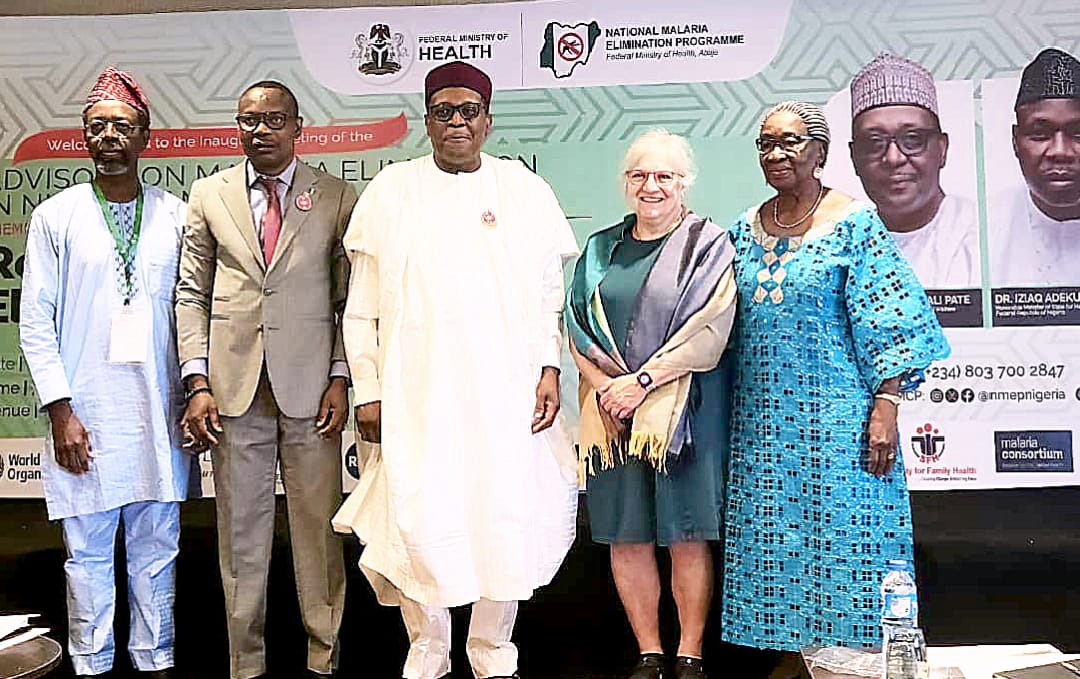
– Highlights $1.1 Billion Annual Economic Loss Due to Malaria
– Calls for Grassroots Support and Behavior Change
The Federal Government has declared malaria not only a public health crisis but also an economic and developmental emergency that demands immediate action.
This assertion was made by Prof. Muhammad Ali Pate, Coordinating Minister for Health and Social Welfare, during the inaugural meeting of the Advisory on Malaria Elimination in Nigeria (AMEN), held at the Transcorp Hilton Hotel, Abuja.
In a statement signed by Alaba Balogun, Deputy Director of Information and Public Relations on Tuesday, the minister reaffirmed the government’s commitment to eliminating malaria, describing the launch of the advisory body as a decisive step toward addressing the “wicked problem” of malaria, which continues to undermine Nigeria’s health and economic progress.
Highlighting the Heavy Burden of Malaria, Prof. Pate emphasized the devastating toll of malaria on Nigeria, which accounts for 27% of global malaria cases and 31% of malaria deaths worldwide. “In 2022 alone, over 180,000 Nigerian children under five lost their lives to malaria—deaths that could have been prevented with existing tools.”
On the economic impact, he remarked:
“This is not just a health crisis; it is an economic and developmental emergency. Malaria reduces productivity, increases out-of-pocket health expenditures, and exacerbates poverty. The annual loss to Nigeria’s GDP due to malaria exceeds $1.1 billion, underscoring the urgent need for elimination efforts.
“A Strategic Approach to Elimination
Malaria elimination is a cornerstone of the Nigeria Health Sector Renewal Investment Initiative (NHSRII) and aligns with the Renewed Hope Agenda of the current administration. The National Malaria Strategic Plan (2021–2025) targets a reduction in malaria prevalence to below 10% and a 50% reduction in malaria-related mortality (from 50 deaths per 1,000 live births).”
Prof. Pate emphasized the importance of engaging traditional and religious leaders to drive grassroots support and behavior change. He noted that such advocacy efforts, combined with AMEN’s strategies, would promote the use of insecticide-treated nets, chemoprevention, and vaccines, thus accelerating progress.
Expert Advisory for Evidence-Based Action, Dr. Iziaq Adekunle Salako, Minister of State for Health and Social Welfare, described the advisory body as a team of global experts tasked with providing evidence-based recommendations to reduce Nigeria’s malaria burden.
He stressed the need for collaboration across private sectors, international partners, healthcare workers, and communities.
In her remarks, the Permanent Secretary, Daju Kachollom, represented by Dr. Chukwuma Anyaike, Director of Public Health at the Ministry, lauded the administration’s renewed commitment to malaria elimination, noting its potential to reinvigorate efforts across the nation.
About AMEN
The Advisory on Malaria Elimination in Nigeria (AMEN), chaired by globally renowned expert Prof. Rose Leke, has been mandated to:
1. Advance evidence-based solutions to address current challenges.
2. Advocate for the prioritization of malaria elimination in budgets and plans at all levels of government.
3. Establish accountability frameworks to ensure sustained progress.
With these strategic steps, the Federal Government reaffirms its resolve to combat malaria and set Nigeria on a realistic path toward becoming malaria-free.





